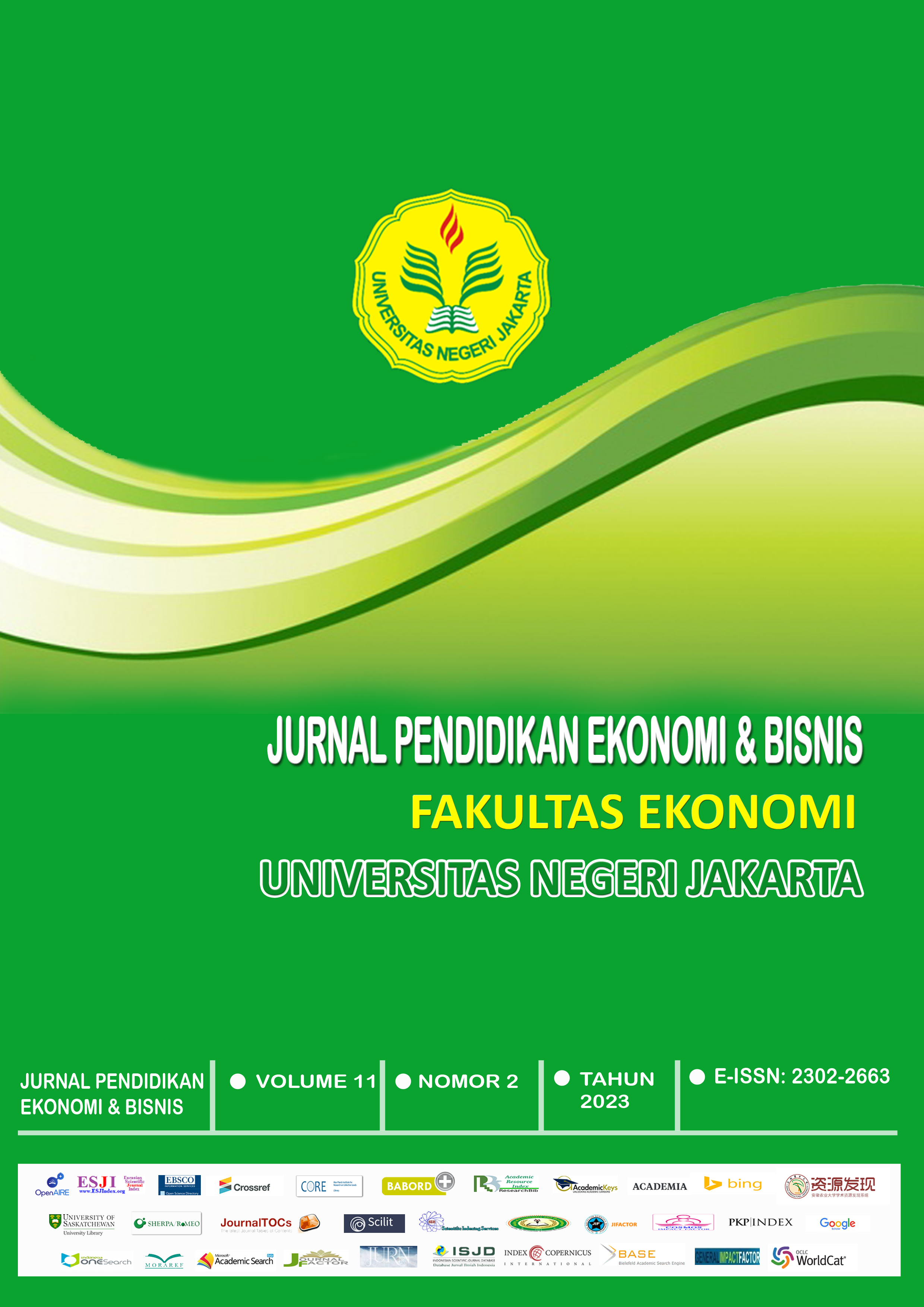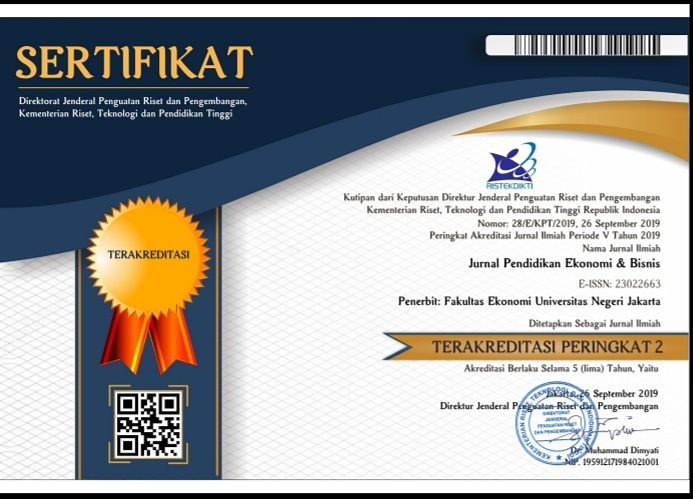Analysis of South Korea's Macroeconomic Development with the Vector Error Correction Model
DOI:
https://doi.org/10.21009/JPEB.011.2.4Keywords:
Gross Domestic Product, Import, Inflation, Unemployment, Vector Error Correction ModelAbstract
This study examines the relationship between Gross Domestic Product (GDP), Import (IMP), Inflation (INF), and Unemployment (UNP) in South Korea using the panel vector error correction model (VECM), cointegration, and Granger. VECM is used to analyze the relationship or causality between variables involved in this research in the short and long run. From the estimation results, especially on the variables of interest, there is a positive and statistically significant relationship between Gross Domestic Product, Import, Inflation, and Unemployment, which refers more to short-term causality. Impulse Response Function analysis is used to determine the impact between variables where the results that had a positive effect during the Covid-19 pandemic were import shocks to GDP and unemployment shocks to GDP, while those that had a negative impact were inflation rate shocks to GDP in South Korea during the Covid-19 pandemic.
Downloads
Published
How to Cite
Issue
Section
License
Articles in Jurnal Pendidikan Ekonomi & Bisnis are Open Access articles published under the Creative Commons CC BY-NC-SA License This license permits use, distribution and reproduction in any medium for non-commercial purposes only, provided the original work and source is properly cited. Any derivative of the original must be distributed under the same license as the original.








